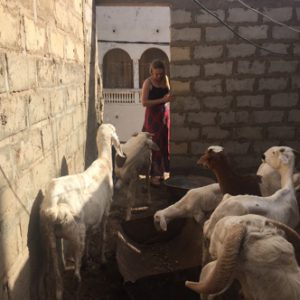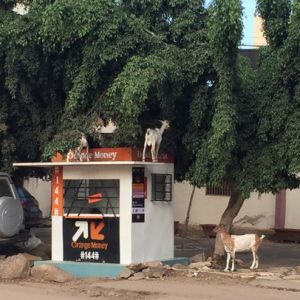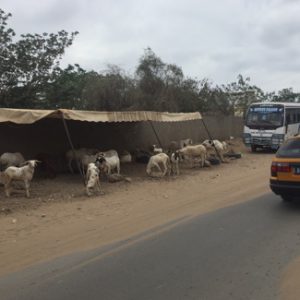BY ELIZA AMSTUTZ
The eve of Tabaski, everything is quiet, except the five or so sheep atop our roof! Most have traveled to the suburbs of Dakar, or beyond, to join their loved ones for the holiday, but others, like my family, stay in their neighborhoods.
What is Tabaski?
The Senegalese equivalent of Eid, la fête de Tabaski commemorates Abraham’s devotion to God in his willingness to sacrifice his son Ismael. Upon seeing that he would indeed make this sacrifice, God excused Abraham from carrying through and instead, had him sacrifice a sheep. Therefore, as my host sister Aida explained to me, each boy must sacrifice a sheep annually to celebrate Abrahams devotion to God.
Weeks leading up to the day of Tabaski, walk the streets of Dakar to find every open plot of ground packed with sheep under tarp shelters, their hooves pegged to rocks and wooden stakes, vendors keeping watch day and night. It was for that reason that I didn’t get to know my host brother Gorgui until after Tabaski commenced. I would catch him coming home for dinner, then leaving again to spend the night shift watching over the sheep to be sold the next day.
Wednesday morning, the day of Tabaski, I woke up, restless in anticipation because precisely between the hours of 9:00 and 10:00am, the streets would be scattered with the blood of sheep, one or more per family, depending on how many men. After much thought, I decided I wanted to watch the sheep ritual take place.
The women had been preparing food since the minute I awoke. Standing on our little porch, my eyes surveying the sandy street, I watched the men returning from prayer, mats rolled up under their arms. After disappearing into their houses clothed in beautiful silk robes, they emerged in common clothing to dig deep holes in front of each doorstep.



When my brothers brought our sheep, several friends appeared to help out. Jumping aside as my brother Gorgui dragged a struggling sheep that had been living on our roof, past me and out the door, I watched as they laid it on the ground, neck over the hole. Along our street, groups of boys and men did the same. After gently cutting the sheep’s throat, they directed the blood into the hole, and when it was dry, carried the dead sheep inside to butcher it.

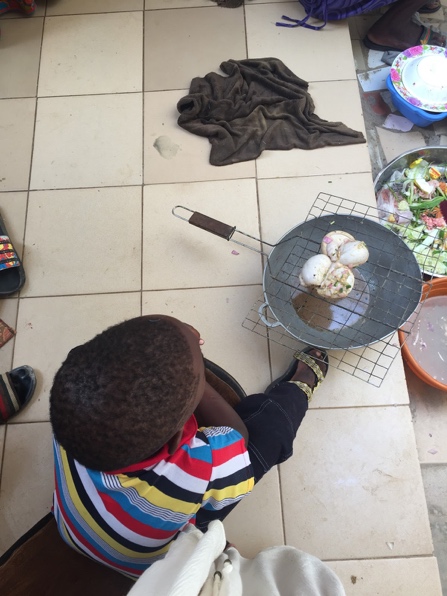
Aida, Mama Thiam, and Sigé had begun food prep early that morning, and the guys pitched in by butchering the sheep, and literally using every last piece. I chopped veggies and tried to take in all that was going on around me. Relatives and neighbors stopping by, kids playing, music blasting, the flow of people and greetings never seemed to cease. It is custom for each visitor to greet everyone in the house, I’m not going to lie, it got pretty overwhelming, but what a great way to get to know the extended family and neighbors, Oh! And break out of my shell as they made me dance to Senegalese music all day long!

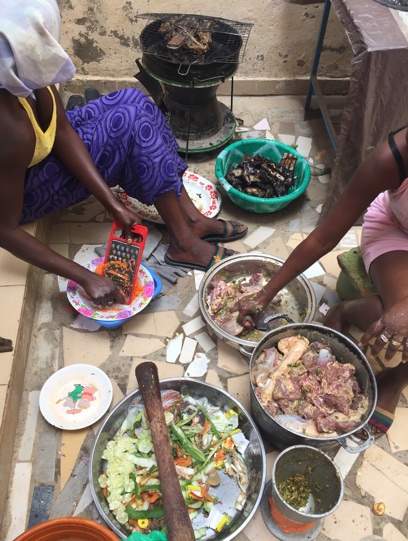

Having finished chopping up the mutton, the men handed it off the the women to BBQ alongside frying potato wedges, spices ground with stone, onion sauce in the making, and proceeded to sit down, smoke, make tea, and talk, comme toujours! In Senegal, the women do almost all the housework, though considered a guest, I was expected to sit with the boys and men, chatting and making tea.
After a morning full of preparation, lunch was served. My sister placed the big round bowl on a cloth in the common area and relatives flocked around the neatly placed BBQ mutton and homemade potato wedges topped with a spicy onion sauce. It is custom to use your right hand as you tear chunks of mutton from the bone and to use a friend to get more leverage of the meat is too tough. I don’t recall ever having eaten meat so fresh. The bone on which I was gnawing had belonged to the sheep I had watched my brothers drag down from the roof that morning, and now, several hours later, I was eating it with spicy onion sauce.
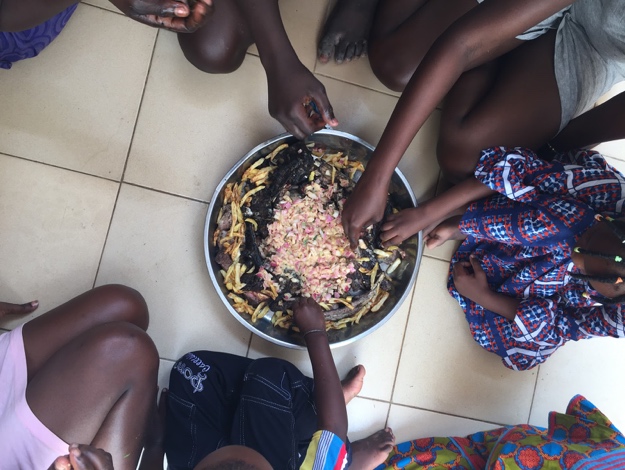
A now well fed extended family sat back, “sourna” – full/unable to eat more, but my sisters didn’t rest. Qu’est-ce que tu fait? I demanded, watching Mama and Aida chop and fry more potatoes and refill the BBQ with more cuts of mutton. Turns out it was time to prepare the next meal, the one we were to have in less than 3 hours. I don’t know how many extended relatives and friends stopped by that day, but there was an entirely new group present for the late afternoon meal. I was happy to catch guests snacking on my California pistachios throughout the day.
A little more relaxing and greeting family, and it was time for dinner! One thing I love about the way we eat here is the mentality that everyone takes care of everyone around the meal bowl. People will take it in turns to break up the meat with their hands, distributing bite size chunks to each person’s corner of the round bowl to ensure they “mange bien!”. Nek naa torop – everything is delicious! The many meals and gathering of family reminded me of my US family’s celebration of Thanksgiving, a holiday on which other day is spent enjoying each other’s company and cooking food. Tabaski, however, or just Senegalese eating habits in general, don’t permit you to over-stuff yourself because you’re eating out of one bowl and must leave some for others.
A day full of festivities and it was time to sortir. The night of Tebaski, people generally dress up and walk the neighborhood visiting friends and loved ones. It is tradition for children to dress in their best and parade around the neighborhood asking for treats.
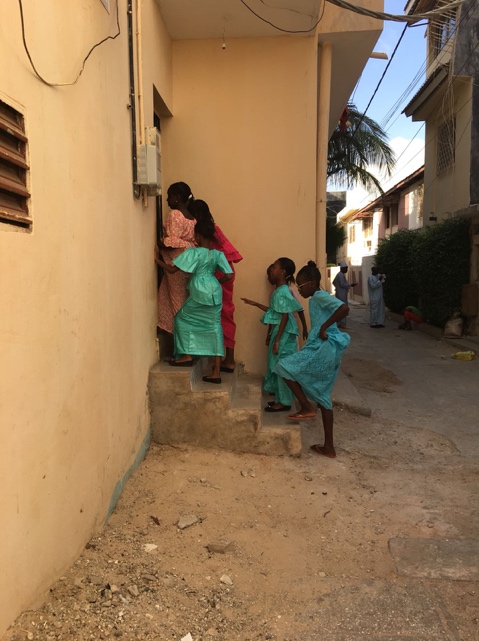
Later in the night, my sisters Aida and Mama Tiam loaned me a beautiful orange and blue blouse and skirt and we got ready to “sortir”. Taking a bit of time to prep, I rushed to be ready on time. Turns out there was no need to worry, my sisters took another half hour to hour doing their make up and deciding what to wear. This was one of my first exposures to the reality that everything here is pushed back an hour or more from schedule.
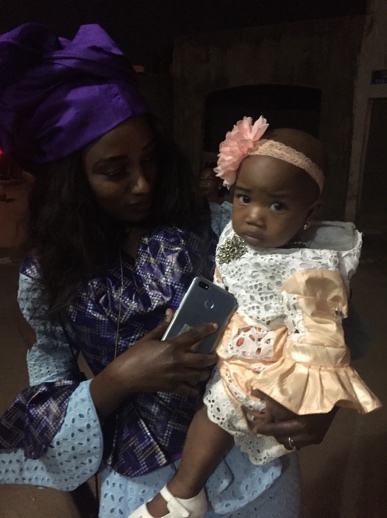
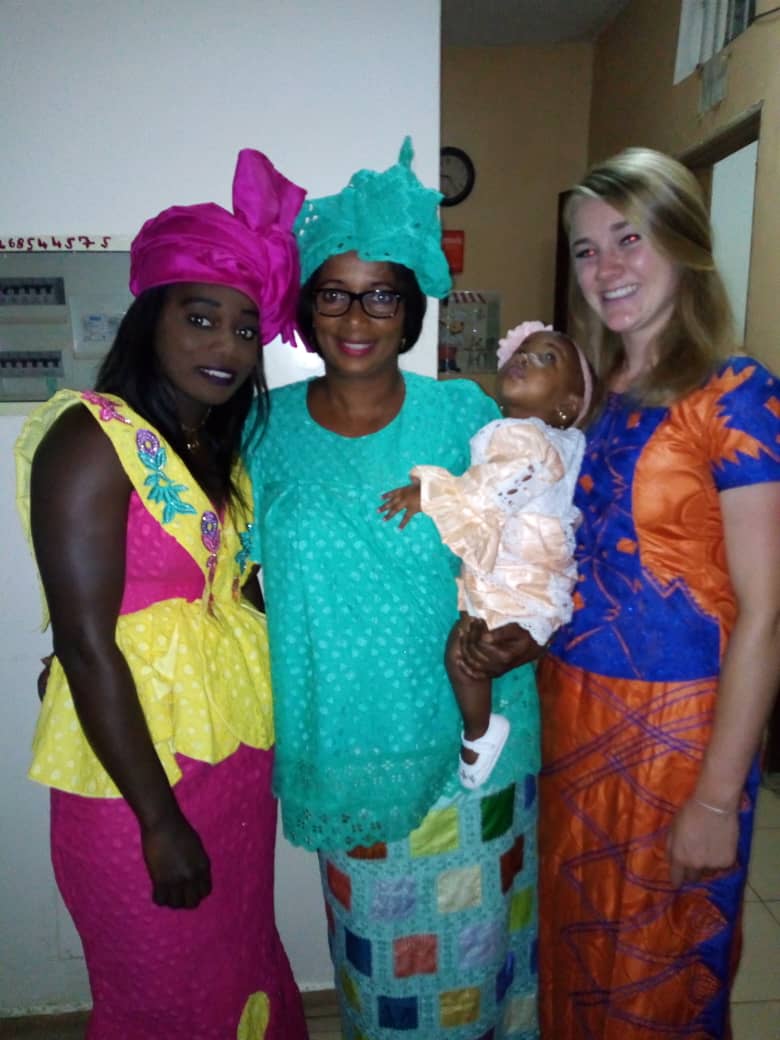
Two of Aida’s friends picked us up along with our friend Binta and we drove across town, my sisters taking selfies the entire way. Arriving at Djob’s house (my sisters friend), I thought we were stopping in for last minute items before “la fête”, but this empty house was “la fête”! All six of us lounged in the living room. I drank juice as my sisters spent an hour posing for photos in their Tabaski best. A cute room backset with Senegalese and Nigerian music and chatting with my sisters friends, I was content. After being there for several hours, we got back in Djob’s car and drove home. I definitely got an age specific perspective of Tabaski night for had I been with my mom, we would have walked around the neighborhood, stopping to see her relatives. Anticlimactic though it was, I enjoyed our little “sortir” that helped me get to know my sisters.
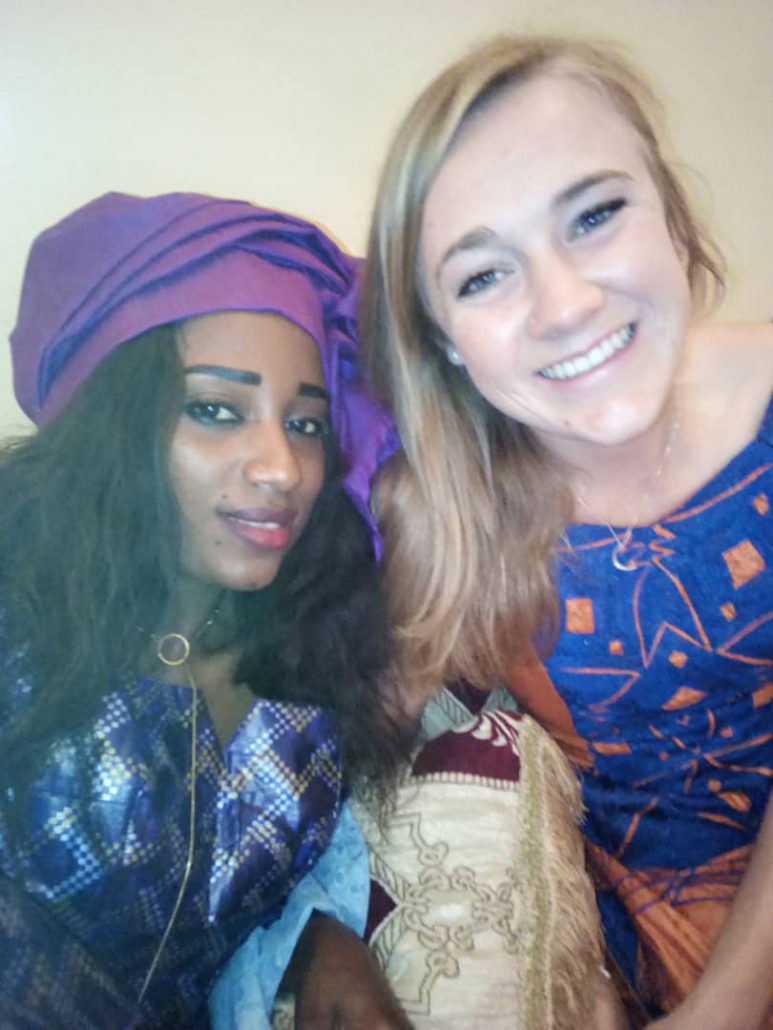
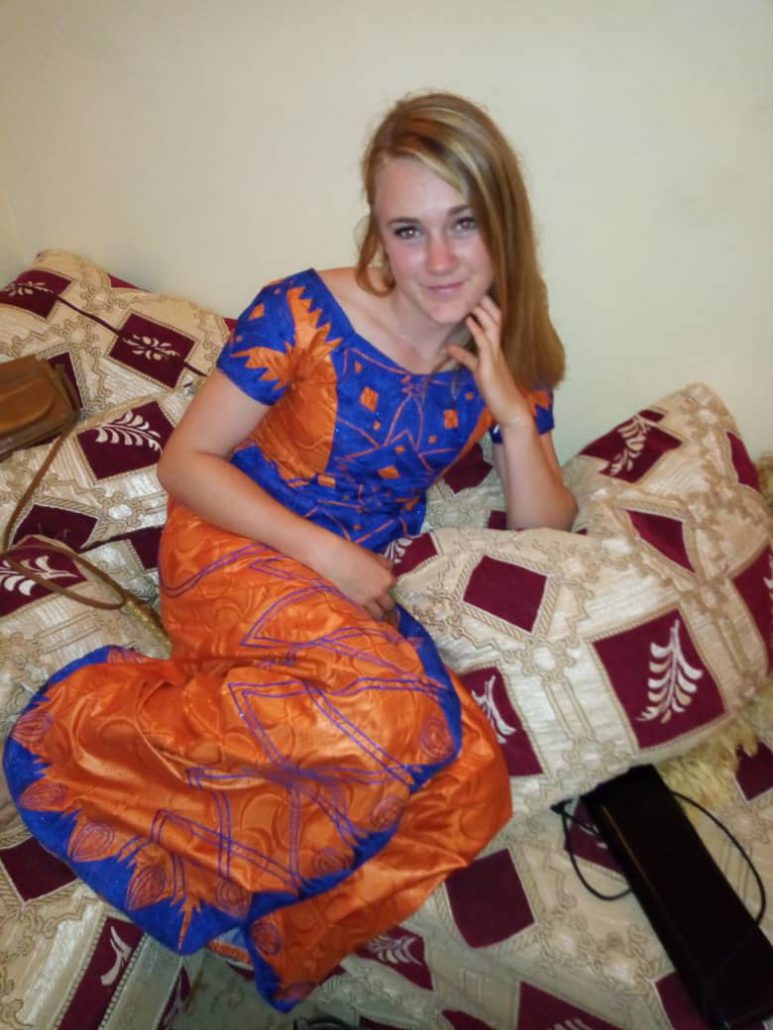
Somewhat analogous to Thanksgiving, Tabaski was the perfect holiday to have during my first week in Dakar. I met the extended family throughout the day, spent hours chatting with my brother and his friends around Ataya (tea tradition), witnessed the ritual Tabaski ceremony, and experienced a wonderful introduction of Senegalese culture through their practice of this major holiday.
Eliza Amstutz studied abroad in Dakar, Senegal during Fall 2018: http://eap.ucop.edu/OurPrograms/senegal/Pages/african_developmental_studies_Dakar.aspx?_ga=2.46751911.1203383737.1560395031-875334149.1560395031



